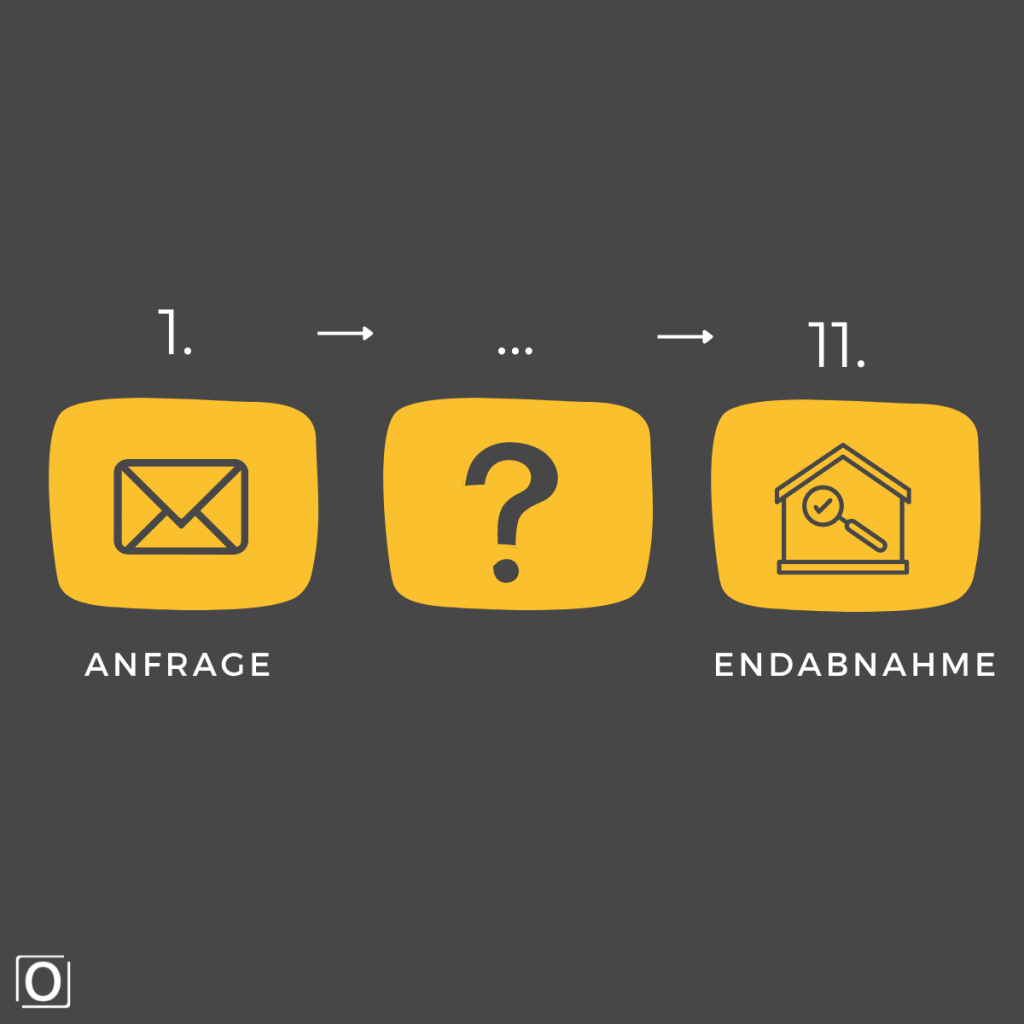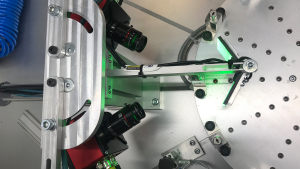How does a vision project work?
From inquiry to final acceptance
Often image processing projects differ from each other. However, to provide a rough overview, here we present the steps a project must go through from inquiry to final acceptance.

Step 1 - Your request
You know you have a problem that could be solved with image editing and have found a way to contact us. That’s great and the first important step towards your solution.
Step 2 - Pattern analysis
We have understood your problem and want to collect initial data by carrying out a pattern analysis. For example, we can find out what hardware we need for your application.
Step 3 - Specification
In this step, we specify what is needed to successfully implement the project. We try to find out whether your problem can be solved with a standard solution or whether you need a customized solution.
Step 4 - Selecting the hardware
We select the right lens, sensor, shutter or mounting for your future evoVIU to suit your application.
Step 5 - Hardware integration
Once we have selected the best hardware for you, it’s time to integrate it into your production line. Your system does not necessarily have to be stopped for this; integration can often take place between shifts or when the system is at a standstill anyway.
Step 6 - Data collection
Once the camera is integrated, we can start taking the first pictures. We can collect the images either on your server or in the cloud.
Step 7 - Development of an image processing strategy
After data acquisition, Machine Vision can either be performed directly or a strategy can be defined.
Step 8 - Create algorithm
In a recurring process, an algorithm is created that helps to evaluate the images in the best possible way.
Step 9 - Implementation
As soon as the algorithm is working properly and a success rate of at least 95% can be achieved, the new node version can be implemented on the evoVIU Smart Camera.
Step 10 - Repeat steps 6 - 9
The process can be continuously improved by repeating the steps with more and more data until the target result is achieved.
Step 11 - Final acceptance
The final step is the final inspection. From now on, your image processing project can help you to work more efficiently, avoid errors and save resources.
Other contributions:

Release Update V5.4.0
The release update V5.4.0 is here! A major dashboard update, minor bug fixes and the integration of persistent variables are included.

Finally: The new VIU2 PoE camera is here!
The VIU2 PoE camera is here! You can find out why PoE is an important feature in this article.

Finally: The new VIU2 PoE camera is here!
The VIU2 PoE camera is here! You can find out why PoE is an important feature in this article.

